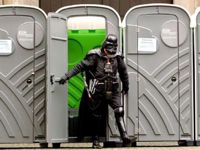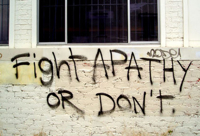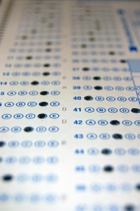
Virtual Reality and Education have a long and checkered history.
On-line worlds give students opportunities to experience things that would be too expensive, too dangerous, or too time consuming in the “real” world. It allows us to distill an experience into it’s essence while allowing learners to be active agents rather than passive recipients.
That said I would argue that the word “virtual” has little or no meaning for today’s students. It is an artifact from a time when the internet was not a pervasive presence. In todays on-line social spaces teens are making friends, sharing experiences, flirting, competing, earning status, and defining their identities. There is very little that is “virtual” about any of this for them – it is just one more aspect of reality.





 An instructional monoculture is a world where all children are expected to learn the same things, the same way, at the same time.
An instructional monoculture is a world where all children are expected to learn the same things, the same way, at the same time. New York, Texas, California, and Florida have opted out of No Child Left Behind (NCLB) and will be abandoning all high stakes testing. It is unclear at this time if other states will follow, although indications from across the political spectrum are clear there is strong interest.
New York, Texas, California, and Florida have opted out of No Child Left Behind (NCLB) and will be abandoning all high stakes testing. It is unclear at this time if other states will follow, although indications from across the political spectrum are clear there is strong interest. Curious about how Web 2.0 is going to affect education?
Curious about how Web 2.0 is going to affect education?